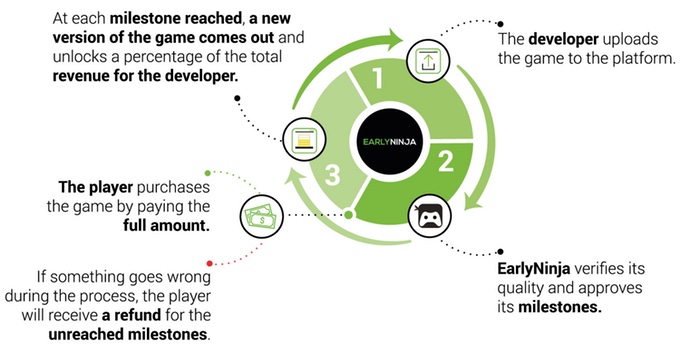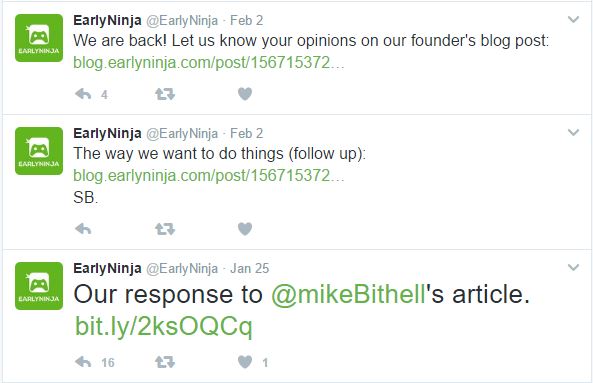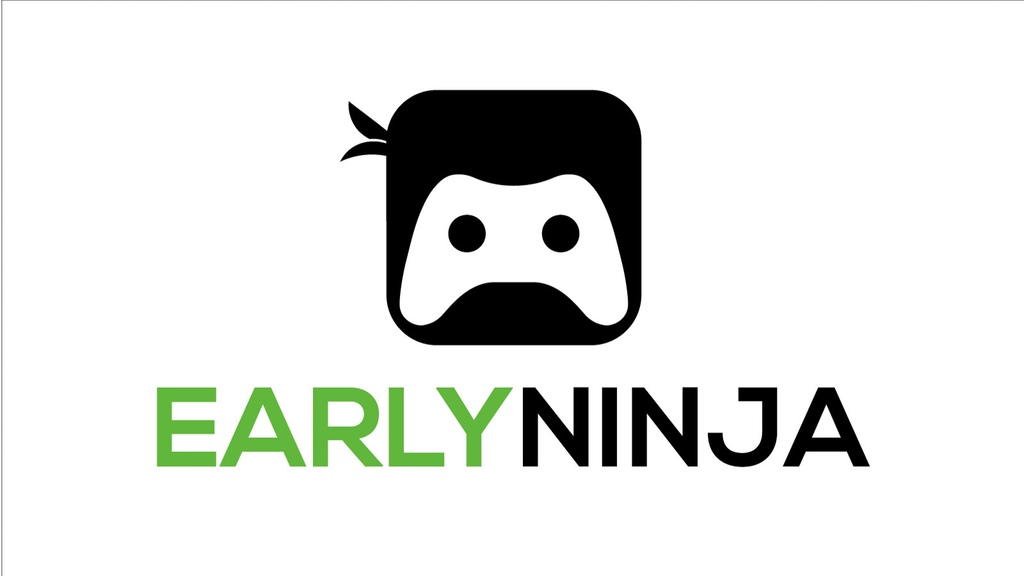EarlyNinja is a Kickstarter campaign for a service and platform meant to help independent developers as well as gamers. The core concept basically shakes down to a publisher-like relationship with developers wherein EarlyNinja provides direct guidance, support, and development funding (in a way) for the teams it works with. It is also meant to protect gamers from Early Access projects which (sometimes) fall into obscurity never to be finished. They propose the solution as withholding development funding if the teams under their wing fail to fulfill project milestones. In that way, developers are goaded to continue work and meet their previously defined goals. And, as goals are met, the game continues through development and no one is screwed out of a final release for an Early Access game.
You might personally find something wrong with this entire setup. In fact, many people did take numerous issues with the simplified version of EarlyNinja’s pitch right out of the gate. Tons of commentary went around on Twitter, blogs, forums, and elsewhere decrying EarlyNinja as an awful idea. Others simply failed to really find much value in the service as they did not have many problems with Steam Early Access as it currently stands. Some couldn’t help to take things to a meta level by comparing EarlyNinja to another form of crowdfunding – just with risks ever so slightly mitigated. All in all, people were talking about the Kickstarter but not in a good way. As negativity spread in the first 24 hours, some backers even dropped out.

Pledges (in Pounds) to EarlyNinja Kickstarter by day
Over a week after all this initial nay-saying drama, the EarlyNinja Kickstarter is effectively dead in the water. It has flatlined with at most a one or two backers pledging a day. The close to $100,000 goal is almost certain to go unfunded now that most have written it off. Is there anything EarlyNinja can do to turn the tide? Not likely, mainly because they burned their bridges right out of the gate in a textbook case of how not to respond to criticism. Once initial commentary went from positive press to confusion and concern, the team at EarlyNinja did not appear to sympathize with their audience.
Instead, they opted to hold tighter to their ideals and simply repeat their points with slightly more detail. The biggest example of this behavior was in a back and forth blog exchange with game developer Mike Bithell. After sharing some thought out comments about EarlyNinja, they responded fairly quickly with a post which did its best to refute the majority of issues Bithell found with their concept. However, instead of providing compelling explanations, the response felt far more like the team were ignoring what was said. Instead of reflecting on and realizing the potential issue with having no team members with any game development experience, they pivoted about how game development experience is not important despite their supposed focus on providing expert guidance to developers, which would make them opt for EarlyNinja over plain old publishers or forgoing outside aid all together.

EarlyNinja’s pitch as an infographic
There is no doubt that EarlyNinja has been in the works for a long time – a few years, in fact. The team even has their platform in working form right now. That’s a great step that many often fail to get to before launching their first crowdfunding campaign. However, having a prototype or working beta alone isn’t always enough of a selling point. In order to get positive attention your plan must be able to withstand fair criticism – and much of the push back has been fair. It must be incredibly painful to hear all these valid remarks (ignoring less savory responses) about something the team thought was a total slam dunk. But these concerns must be listened to.
Thus far, it’s impossible to tell if EarlyNinja truly are listening or instead cocooning themselves further. After the Bithell response piece on January 25, they went completely radio silent. It was only on February 2 – a week after the initial drama – that co-founder and CEO Stefano made the next public remark via blog post. Although it at first seems like a make good effort from everyone involved, it still misses the major point of people’s criticism. The core concept as it currently stands is unfortunately not good enough to generate interest from many developers or gamers. Instead of clenching more tightly to their supposed value proposition, EarlyNinja should instead be focusing on how to address concerns and modify their platform in ways that actually prove appealing to the majority.

Snapshot of EarlyNinja Twitter account. Note their week-long disappearance from social media.
Of course, this is no easy feat. After working away at this specific concept for years now they are invariably attached to its current rendition. However, people have all but rejected EarlyNinja as it stands. If the team wishes to salvage any goodwill at this point their best move is to step back and reassess their platform and next steps. In all honesty, they should cancel the Kickstarter campaign for now as they regroup. It obviously is not poised to make its funding goal unless the team pumps even more money into the project after doing so for years on end already. A move of this nature would serve as a display that EarlyNinja are listening to concerns and viewing them as valid. Yet, as of now, the Kickstarter trucks along in a sad state.
EarlyNinja are still in the process of learning a very hard truth about crowdfunding. You may think you have a fantastic idea that everyone else will love, but there is no way to be certain of this. It’s only once your project is finally out there asking for money that you’ll see whether or not anyone actually finds it worthwhile enough to fund. Instead of simply failing to gain any attention, EarlyNinja received heavily negative feedback. This was certainly unexpected for the crew which explains their rare and short-sighted responses up to this point. However, anyone willing to put their dream project out for the world to see (and fund) must be prepared for the potential that people could totally hate it. As much as it hurts, you simply cannot afford to ignore the majority’s feedback when running a crowdfunding campaign.



